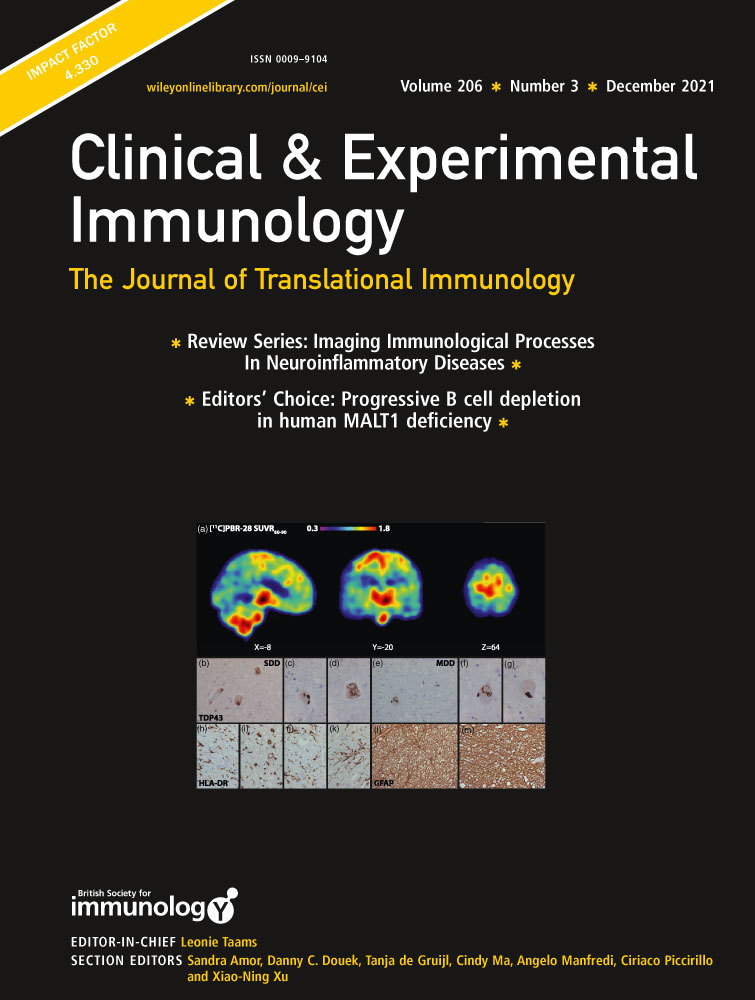IL-4, IL-10 and IL-13 down-regulate monocyte-chemoattracting protein-1 (MCP-1) production in activated intestinal epithelial cells
Abstract
Several studies have demonstrated that intestinal epithelial cells play a major role in the initiation and perpetuation of intestinal inflammation by secreting proinflammatory cytokines and chemokines. MCP-1 is suggested to be a chemokine that plays a major part during intestinal inflammation in inflammatory bowel disease (IBD). Immunoregulatory cytokines such as IL-4, IL-10 and IL-13 have been described to exert anti-inflammatory properties on various cell types. The aim of our study was to determine the effect of Th2 cytokines on the production of MCP-1 by activated intestinal epithelial cells. We examined Caco-2 cells as well as intestinal epithelial cells which were isolated from surgical specimens. Production of the chemokine MCP-1 was determined under stimulated and non-stimulated conditions. IL-4, IL-10 and IL-13 were added to stimulated epithelial cells under various culture conditions. Supernatants were analysed for cytokine concentrations using ELISAs. Under stimulation with physiological agents like IL-1β or tumour necrosis factor-alpha (TNF-α), we observed markedly increased concentrations of MCP-1 in supernatants of Caco-2 cells and intestinal epithelial cells. IL-4, IL-10 and IL-13 all had the capacity to down-regulate the production of MCP-1 in Caco-2 cells as well as in freshly isolated epithelial cells. Caco-2 cells which were primed with Th2 cytokines 24 h before stimulation were subsequently decreased in their ability to be stimulated by IL-1β or TNF-α for MCP-1 production. As MCP-1 has been shown to play a major role during intestinal inflammation, the in vitro suppression of MCP-1 in enterocytes suggests the in vivo use of regulatory cytokines in patients with active IBD.




